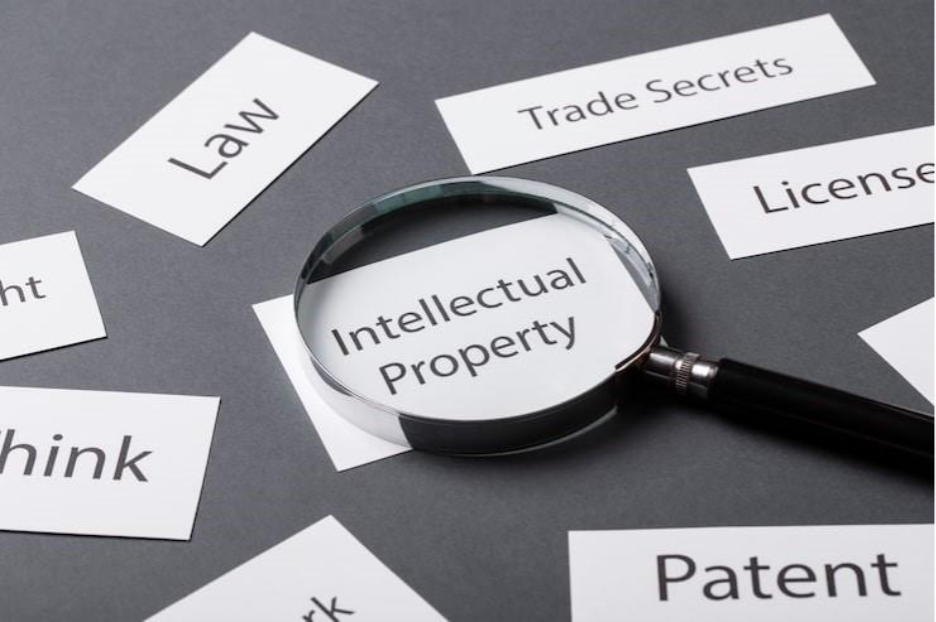
Before transferring funds, signing contracts, or approving new vendors, one crucial step can prevent major losses — verifying whether a company is real or fake.
In 2025, fake companies, fraudulent vendors, and cloned websites are easier than ever to create. Scammers use AI-generated documents, deepfake executives, and entire digital ecosystems that mimic authentic operations. Even seasoned compliance officers and investors can be fooled by entities that look completely legitimate on the surface.
That’s why it’s essential to understand how to tell if a company is legit — and how to perform a structured legitimacy check before doing business.
BusinessScreen.com, a global leader in corporate verification and due diligence, helps organizations confirm authenticity across more than 150 countries. Its investigator-verified intelligence, registry validation, and global sanctions monitoring ensure every partnership begins with trust.
A legitimate company is officially registered, licensed, and compliant with its jurisdiction’s regulations. It appears in a recognized corporate registry, has transparent owners and officers, and operates under its stated name and address. Legitimate companies can produce verifiable documents — such as certificates of incorporation, shareholder statements, and business licenses — when requested.
They also maintain a consistent digital identity: a professional website, matching contact details, and traceable communication channels. To understand which records and credentials count as proof, see What Is a Due Diligence Background Check and Why Do One.
Every organization should adopt a clear process for checking company authenticity. The following framework integrates official data, ownership transparency, and professional verification.
Start by confirming the company’s registration in an official government database. In the U.K., that means Companies House; in the U.S., state-level Secretary of State portals or the SEC; in Australia, ASIC; and in India, the MCA. A real company will have a traceable incorporation date, registration number, and list of officers. If these details are inconsistent or missing, proceed with caution.
BusinessScreen.com’s Business Verification platform automates this step by pulling live data from global registries. For deeper insight into records like UCC liens, see Unmasking Massachusetts UCC Liens: A Step-by-Step Search Guide.
A legitimate business can easily provide incorporation certificates, shareholder or ownership records, and UBO (Ultimate Beneficial Owner) disclosures. These materials reveal hidden controllers or offshore structures often used by shell companies. If the company hesitates or provides incomplete documentation, that’s a serious warning sign. Learn how to validate these records in How to Verify Beneficial Ownership.
Beyond registration, reputation tells the real story. Investigate litigation filings, bankruptcy histories, and media coverage. A company might look financially healthy yet still face corruption or fraud allegations. Adverse Media Screening: How to Detect Hidden Risk Signals explains how negative-news monitoring uncovers red flags early. You should also review sanctions data — see What Is a Sanctions List? — to ensure the entity and its owners aren’t restricted from international trade.
BusinessScreen.com integrates all these checks into a single investigator-verified profile, surfacing fraud and compliance risks that basic database tools often miss.
Today, countless scams operate entirely through fabricated websites. A real business site uses secure HTTPS protocols, displays accurate contact information, and matches registry data. Domain-age lookups via WHOIS reveal when and where the site was registered; newly created or foreign-hosted domains deserve scrutiny.
For a practical breakdown of this process, explore Check Out a Company Reputation: 11 Resources. BusinessScreen also connects domains to verified company records, ensuring the URL you see belongs to a registered entity.
The surest confirmation comes from a complete corporate KYC report combining registry data, beneficial-ownership mapping, sanctions and PEP screening, and litigation research. Corporate KYC reveals who truly controls the organization and whether it meets global AML standards.
BusinessScreen’s investigator-verified reports consolidate this intelligence into one dashboard. To preview what a comprehensive file looks like, visit the Due Diligence Sample Report.

Individual KYC verifies a person’s identity through personal documents. Corporate KYC, by contrast, examines the legitimacy and ownership of an entire business structure. It uncovers relationships among parent companies, subsidiaries, and beneficial owners to show who really operates behind the name.
Complex networks of LLCs and offshore entities often conceal sanctioned or high-risk owners. BusinessScreen simplifies this web of connections with automated data-matching, multilingual records, and continuous monitoring. See Enhanced Due Diligence: How to Vet High-Risk Clients for a deeper look at this process, and read How to Run a Background Check on a Business for step-by-step guidance.
Online-only businesses are growing fast — and so are online scams. Fraudulent sites may list invented executives, use stolen logos, or clone legitimate brands. To evaluate an online company, start by checking its web security. A secure site begins with https://, holds a valid SSL certificate, and uses a domain that matches the official company name.
Next, examine transparency. Authentic businesses post clear privacy policies, working phone numbers, and physical addresses. Compare these details with official registry data. Search independent reviews and cross-reference the website’s domain age and hosting country — you can find practical monitoring methods in Fraud Detection in Online Transactions.
When in doubt, order a professional Company Background Check from BusinessScreen.com. Its technology links domains directly to verified business registries, confirming whether an online presence corresponds to a legitimate, incorporated entity.
Once you’ve completed the basic five-step process, you can take your verification further by layering investigative checks. These go beyond simple data matches and uncover deeper risk signals that reveal whether a company is truly legitimate.
Start by looking into financial and credit standing. Real companies have measurable business credit histories, tax filings, and payment records. To learn how to interpret these, visit The Ultimate Guide to Business Credit Scores. For in-depth entity insights, BusinessScreen provides Business Credit Reporting that confirms operational and fiscal authenticity.
Next, explore lien and property searches. These can show whether a business has pledged assets, carries debts, or faces claims. Understanding liens is an important part of commercial due diligence — see What Is a Property Lien Search and What Is a Lien for deeper guidance.
You can also verify a company’s legal footprint. Authentic entities leave traces in regulatory filings, UCC databases, and civil court records. Learn how to uncover this evidence in How to Find Civil Case Records: Step-by-Step Guide and UCC Filings.
Finally, review reputational and compliance factors. Check for consistent branding, ESG transparency, and compliance certifications. For detailed frameworks, see Company Due Diligence: What It Is and Why It’s Crucial and Reputational Due Diligence: How to Detect Hidden Red Flags.
If you’re verifying a company within the United States, start by searching its record in the relevant Secretary of State corporate registry. Every legitimate U.S. business has a state-issued identification number and filings that confirm its incorporation or LLC status.
Next, verify whether the company is registered with the Internal Revenue Service (IRS) and has an Employer Identification Number (EIN). For partnerships and corporations, you can request proof of EIN issuance.
It’s also wise to look at UCC filings and public lien databases, which record secured loans, outstanding debts, and creditor claims. Cross-check the information you find with BusinessScreen’s Business License Check and Lien Search to ensure accuracy.
When dealing with contractors or commercial tenants, reference Conducting Commercial Tenant Background Checks and Contractor Background Checks: A Complete Guide for best practices.
For cross-border deals or partnerships, confirming business legitimacy across jurisdictions can be complex. Different countries have varying registry systems, document standards, and language barriers.
Start by using international registry networks such as the European Business Register or the OpenCorporates database. These can confirm whether a foreign entity exists and when it was incorporated.
However, registry data alone doesn’t always reveal hidden ownership, offshore affiliations, or sanctions exposure. That’s why multinational firms use BusinessScreen’s Global Business Verification — a platform that consolidates registry, sanctions, and reputational data from more than 150 countries.
To learn how to perform jurisdiction-specific searches, read International Due Diligence and Cross-Border Due Diligence: Handling Multi-Jurisdiction Risk.
Fake companies often reveal themselves through subtle inconsistencies. Watch for contradictory registry details, changing ownership structures, or generic contact information. A new domain name, vague leadership profiles, or missing tax and license data are warning signs.
Another red flag is excessive secrecy — legitimate businesses are transparent about their registration, executives, and locations. Fraudulent companies may also avoid verifiable payment methods or insist on cryptocurrency transactions to evade traceability.
Inconsistent branding, missing privacy policies, and cloned content from other websites are equally concerning. To see how advanced detection tools can identify these risks, read Synthetic Fraud Red Flags and AI-Driven Risk Scoring Models: The Future of Corporate Screening.

BusinessScreen.com empowers banks, investors, and corporations to validate authenticity in real time. Its investigator-verified database connects registry records, beneficial ownership data, and global sanctions information to produce a comprehensive risk score for each entity.
Through automated Corporate KYC, Enhanced Due Diligence, and continuous monitoring, BusinessScreen uncovers hidden ownership chains, detects fake registrations, and monitors adverse media coverage.
Its coverage spans over 150 countries, with support for multilingual data and regulatory frameworks aligned with FATF, FinCEN, and OECD standards. Clients also benefit from integrations with Third-Party Due Diligence and Global Sanctions Background Check modules.
Whether you need to confirm a vendor, screen an investment target, or verify a potential acquisition, BusinessScreen provides the clarity and documentation you need to make defensible decisions.
Fraudulent companies are evolving fast — but so are the tools designed to expose them. In 2025, verifying company legitimacy is no longer a precaution; it’s a compliance standard. Every responsible organization must be able to confirm whether a company, vendor, or website is real before any transaction occurs.
With BusinessScreen.com, these checks take minutes instead of days. Its investigator-verified intelligence transforms due diligence from a manual task into a continuous safeguard for your brand, finances, and reputation.
If you’re ready to verify your next partner or investment, Get Started today or Schedule a Demo to see how instant verification works.
How do I know if a company is legit or a scam?
Check its registry records, ownership details, and online presence. Real companies appear in official corporate databases and can provide valid documents. You can confirm these instantly through BusinessScreen.com’s legitimacy check.
How do I check if a company is legitimate in the USA?
Search the relevant Secretary of State database for corporate filings, licenses, or UCC liens. Use BusinessScreen’s Business License Check for verification across multiple states.
How can I verify if a business is real online?
Look for HTTPS security, matching contact information, and domain registration history. For absolute certainty, use BusinessScreen’s Company Background Check to connect domains with registered entities.
What documents prove that a business is legitimate?
A real business provides certificates of incorporation, ownership records, tax filings, and regulatory licenses. You can cross-check these materials through Corporate Investigations.
How much does it cost to verify a company’s legitimacy?
Costs vary by scope — simple registry checks may be free, while full due diligence reports are subscription-based. See How Much Does a Due Diligence Background Check Cost for transparent pricing models.
Can I verify an international company?
Yes. BusinessScreen’s Global Business Verification covers 150+ jurisdictions, consolidating registry and sanctions data for accurate cross-border screening.
How do I avoid fake or scam companies?
Be cautious of newly formed entities, unverified websites, and owners who refuse documentation. Learn to recognize the warning signs in How to Spot and Avoid Fake Vendors.
Final Call to Action:
Protect your organization from financial loss and reputational damage. Verify before you trust. Run a Business Legitimacy Check today with BusinessScreen.com — the trusted source for corporate KYC, due diligence, and verification intelligence.